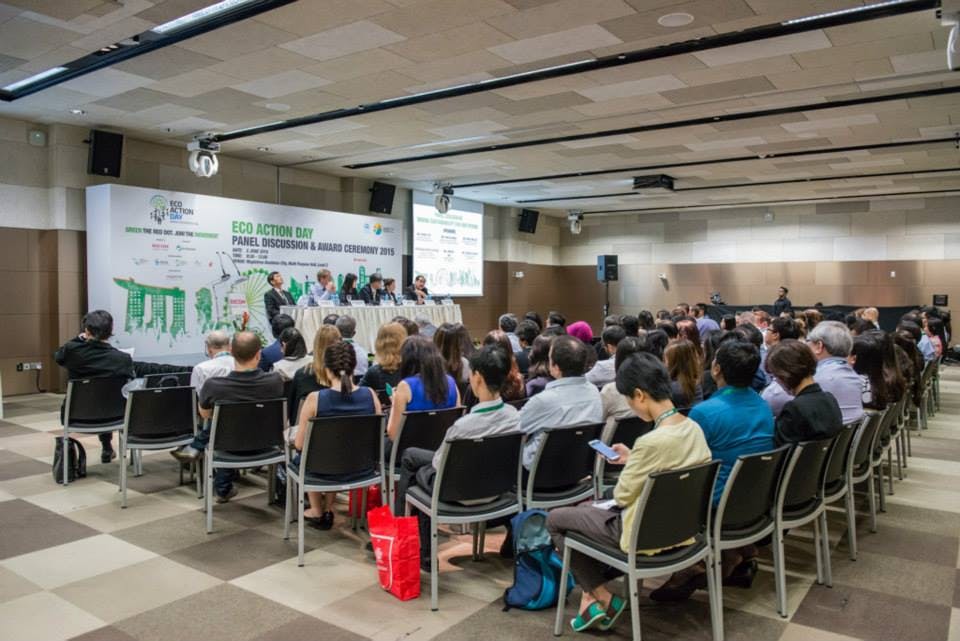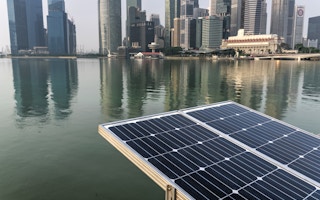The landmark Paris Agreement has been signed. But the question on everyone’s minds now is: What’s next?
While the world’s 195 countries finally adopted a global climate deal in December last year after 20 years of fraught negotiations, the journey towards any concrete action to limit the rise of global temperatures to under 2 deg Celsius is likely to be a challenging one.
To date, although 175 countries have signed the agreement since it opened for signing on Earth Day on April 22, only 15 developing nations have ratified the agreement and deposited their instruments of ratification with the United Nations.
Singapore’s Foreign Affairs Minister Vivian Balakrishnan, who represented the country at the April signing, said then that the Republic “will now turn to making the necessary domestic preparations to enable us to ratify the agreement”. This means that the government agrees to be legally bound by the terms of the treaty.
Under the agreement, the city-state has pledged to reduce its greenhouse gas emissions by lowering emissions intensity by 36 per cent from 2005 levels by 2030, when emissions will be stabilised.
Minister for the Environment and Water Resources Masagos Zukifli, who also attended the UN climate talks in Paris, has noted that Singapore’s pledge is a “very huge commitment … (and) it requires the whole of government as well as the economy to realign, to look at ways to bring down our business-as-usual emissions.”
Every citizen must play his part by reducing energy usage as well as recycling and reusing whenever possible. The Government may also need to regulate industries to keep to emission limit, said Masagos.
In January, he announced that the government would work with businesses to help them adopt greener practices and improve their energy efficiency.
Business innovation
Businesses will indeed play a key role in the global movement to transition to a low-carbon economy.
In this respect, Japanese multinational Ricoh Group has had a headstart. Since the 1990s, it has embarked on implementing sustainable business practices to lower their greenhouse gas emissions and environmental impact.
The technology company, which offers document management systems, IT services, production print solutions, digital cameras, and industrial systems, views business growth as something that has to be balanced with environmental conservation.
To achieve this, Ricoh has numerous sustainability schemes in place. One of these is Comet Circle, which looks at reducing the environmental impact of their products across its life-cycle.
This starts from the resource extraction stage to the manufacturing process in Ricoh’s factories, and looks into how the product is used and maintained by customers, and how it is ultimately disposed of or recycled.
“
Eco Action Day can help to raise awareness of how everyone can contribute to the national effort.
Yuen Sai Kuan, director, National Climate Change Secretariat, Singapore
This initiative helps Ricoh reduce its reliance on natural resources and minimises waste, as well as create new business opportunities, says managing director of Ricoh Asia, Tetsuya Takano.
“Ricoh is in a position to make tremendous contributions to protecting the global environment by implementing measures against climate change and improving resource productivity through its business activities,” he added.
In April this year, Ricoh opened its new Eco Business Development Centre in Japan, which aims to generate new business for the company through three activities that are based on environmental sustainability: resource conservation, energy creation and energy conservation.
Ricoh is also looking to expand its recycling technology to include more products.
Under the Ricoh Sustainable Products Program, similarly launched in April, the environmental performance and usability of its products are also assessed and evaluated against a defined number of strict standards, which cover energy efficiency, resource efficiency, pollution prevention, comfort, usability and corporate social responsibility.
Eco Action Day
Apart from pursuing technological innovation, Ricoh makes considerable effort to get the requisite buy-in not just from its employees but from the wider public.

Ricoh and its partners hosting the Eco Action Day Dialogue in 2015 at Mapletree Business City. Image: Ricoh
This year, it will commemorate a special occasion – the 10th year anniversary of its Eco Action Day campaign in Singapore.
Launched in 2007, the national initiative – which calls on individuals, organisations and schools to pledge actions for the environment every year for World Environment Day - has since grown to become the country’s largest business-led environmental awareness campaign.
Ricoh Asia Pacific has organised it in partnership with public and private sector organisations, as well as civic society organisations.
Sueanne Mocktar, director of the 3P Network Division at Singapore’s National Environment Agency, noted that the agency has been a long-term partner as “we both share similar goals in encouraging corporations in Singapore to adopt environmentally friendly practices and to become more sustainable”.
Yuen Sai Kuan, director, corporate affairs division at the National Climate Change Secretariat, also a campaign partner, observed that for Singapore to achieve its ambitious climate targets, “the Government will be stepping up efforts to encourage businesses, the community and individuals to conserve energy and manage their carbon footprint”.
“Eco Action Day can help to raise awareness of how everyone can contribute to the national effort,” he added.
To discuss ways on how to do just that, Ricoh Asia Pacific and Eco-Business will be hosting an Eco Action Day dialogue themed “From Agreement to Action: Singapore’s climate Pledge” on June 3 which will bring together government, business, and civil society leaders.
Jessica Cheam, editor of Eco-Business, added: “The Paris Agreement is a milestone international effort to tackle climate change, but the hard work of delivering the pledges still remains ahead of us…. Eco Action Day is an ideal platform for all stakeholders to come together to get the conversation going on the strategies we need to fulfil Singapore’s climate pledge”.
Having started 10 years ago as a pioneering group of 18 organisations pledging to save energy, Eco Action Day has grown to be an established platform for pledges of environmental actions, with over 700 organisations having been involved.
Organisations and individuals can pledge environmental actions here at the Eco Action Day website.











